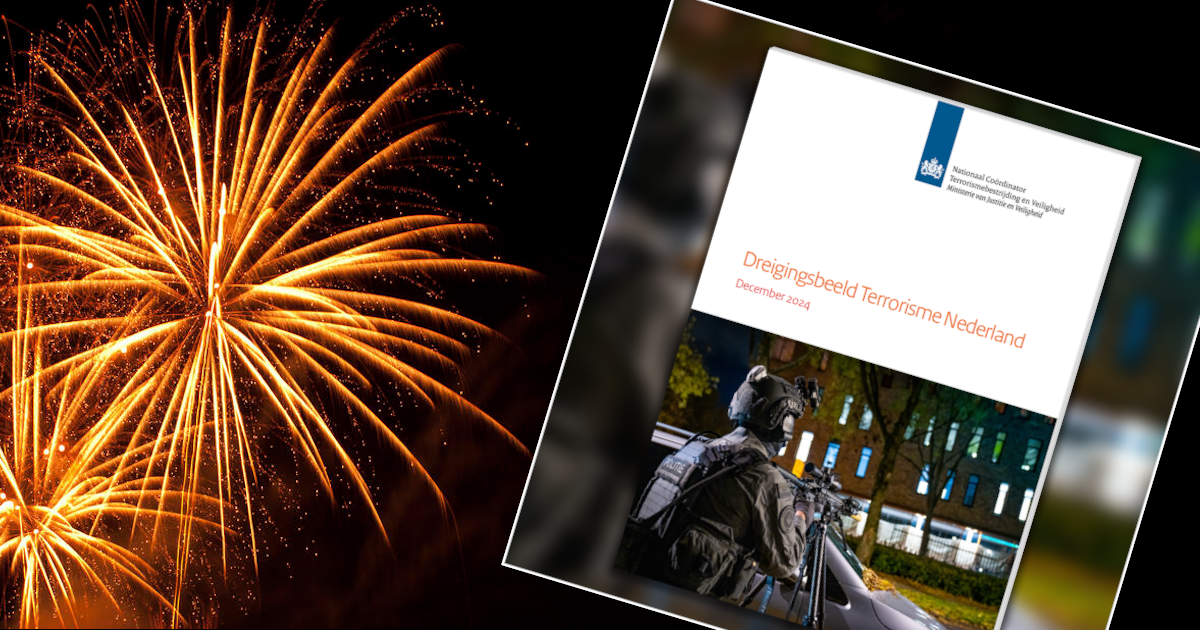Language:

The Role of Security Professionals in a Complex World: Preparing for the Future
As the year draws to a close and we look ahead to 2025, I am pleased to share this final blog of the year with you. I’m proud to conclude this year with a diploma as a Radicalization and Terrorism Expert. This accomplishment not only marks a personal milestone but also sets a new direction for my professional journey. In the coming year, I will focus more on this specialization while continuing to manage my other responsibilities. It will be an exciting combination of my current expertise and this new, crucial focus.
Raising Awareness Among Security Professionals
This blog is specifically aimed at my colleagues in the security industry. From my previous blog, it became evident that many security professionals are insufficiently informed and trained to address contemporary threats and risks. There is often a misconception that events abroad have no direct impact on the security situation in the Netherlands. However, the past year has proven otherwise. Take, for instance, the situation in Gaza and its repercussions on sentiments within our country. It is vital to be aware of these international dynamics and their local implications.
In addition to global developments, domestic situations also play a crucial role in our society. The political landscape is a striking example of this. We are witnessing increasing polarization, potentially fueled by political rhetoric, which is driving us further apart as a society. These internal tensions can have an impact on our safety comparable to that of external threats.
The Critical Role of Security Professionals
As security professionals, we are often on the frontlines of public interaction. Whether it’s screening visitors or addressing inappropriate behavior, we are among the first to identify potential threats. It is therefore essential not only to remain vigilant for suspicious behavior but also to assess, during conversations, whether someone may pose a threat. Additionally, we must be able to interpret the meanings of symbols and signs, such as those displayed on banners during demonstrations. Our role extends beyond physical security; we are also the eyes and ears capable of detecting subtle signals.
Staying informed about developments both within the Netherlands and globally is crucial for security professionals. Fortunately, we don’t need to reinvent the wheel; reliable sources of information are available. One key resource is the National Coordinator for Security and Counterterrorism (NCTV). The NCTV regularly publishes the Terrorism Threat Assessment for the Netherlands (DTN), a critical document for professionals in our field.
The DTN provides a periodic analysis of national and international terrorist threats to the Netherlands. It offers a detailed overview of the current threat landscape, trends in radicalization and extremism, and potential risks to national security. Security professionals should view this report as an essential tool for deepening their understanding of the security situation and adapting their practices to changing circumstances. Interpreting the DTN requires a critical mindset and the ability to translate the information into practical applications in daily work.
By actively utilizing resources such as the DTN, we can perform our roles more effectively and contribute to a safer society.
The Latest Terrorism Threat Assessment for the Netherlands
For the most up-to-date information on current threats and the security situation in the Netherlands, I encourage you to review the latest Terrorism Threat Assessment for the Netherlands (DTN) from December 2024. This essential document, published by the National Coordinator for Security and Counterterrorism (NCTV), provides an in-depth analysis of the current threat landscape.
The latest DTN emphasizes that the likelihood of a terrorist attack in the Netherlands remains real. The threat level remains at level 4 (substantial), indicating a serious threat. Key points from the report include:
- The persistently high threat posed by jihadism.
- A concerning trend of rapid online radicalization among young people, occurring in both far-right and jihadist circles.
- An estimate that several hundred Dutch youths are actively involved in extremist online environments.
The full DTN report from December 2024 is available on the official NCTV website. Click here to download the document. I strongly recommend all professionals in the security industry study this report thoroughly for a comprehensive understanding of the current security situation and potential threats in the Netherlands.
Additional Information Sources and Future Plans
As emphasized earlier, the DTN is just one of many valuable information sources that can aid security professionals. These resources can help expand your knowledge and sharpen your insights into the complex world of safety and threats. For those interested in exploring additional resources, I invite you to contact me. I’ll gladly provide an extensive list of reliable information sources to support your professional development.
With this blog, I not only close the year but also open the door to a new chapter. Although this is the last blog of this year, it is certainly not my last overall. In 2025, I am determined to continue my mission: informing and supporting security professionals and anyone interested in topics such as radicalization, terrorism, extremism, polarization, and related issues. My blogs will remain a platform for sharing knowledge, insights, and current developments in these critical areas.
Finally, I want to thank everyone for their attention and engagement over the past year. I look forward to continuing our collective journey through the world of safety and security in the new year. Let us work together toward a safer society.
I wish you all a safe, healthy, and prosperous 2025. See you in the new year!
